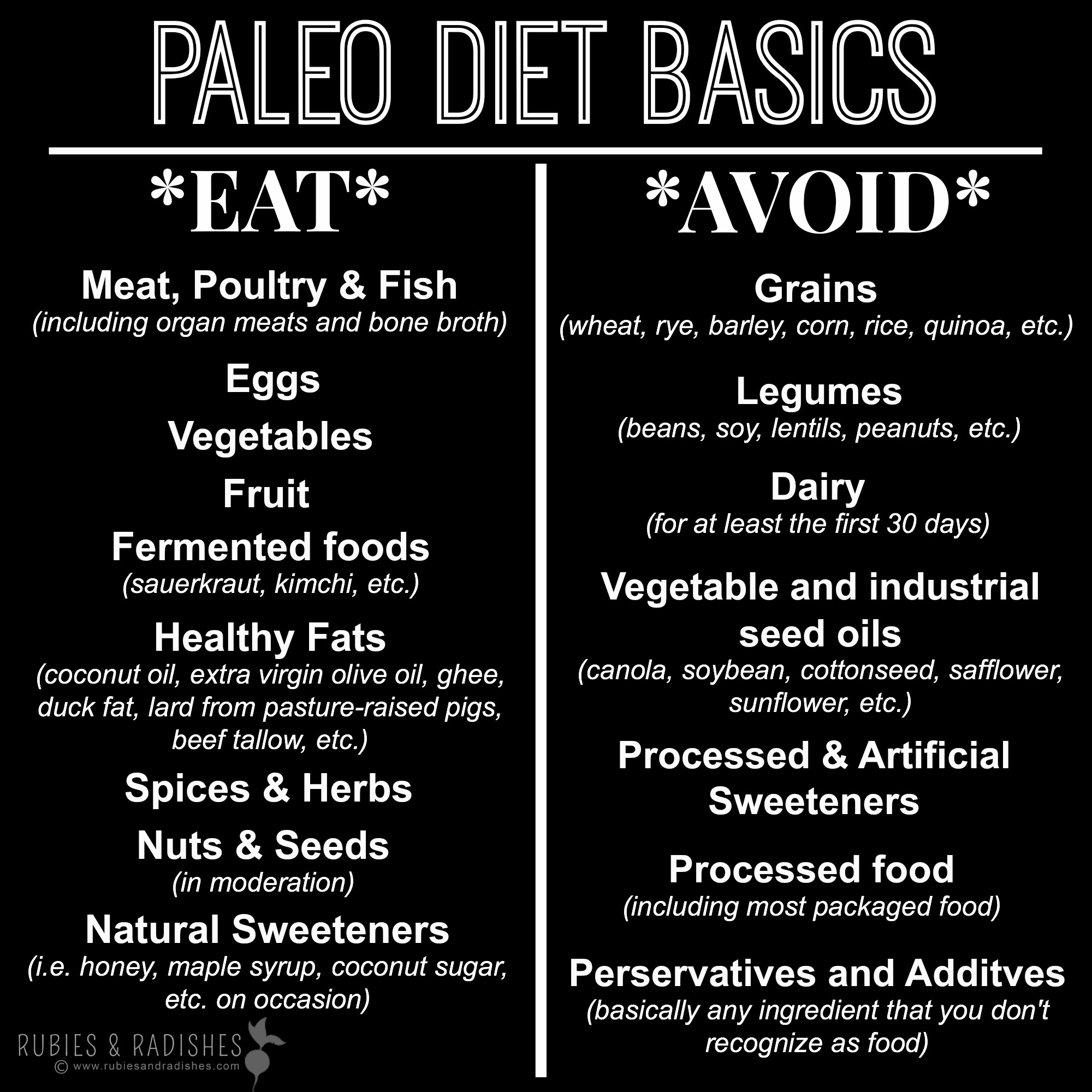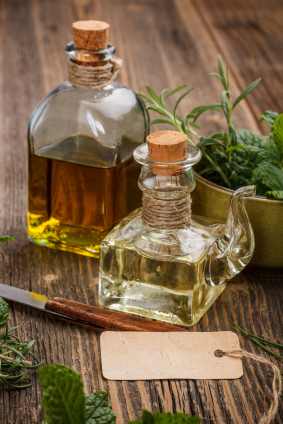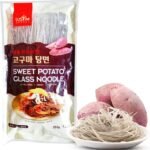Your trusted source for simple, practical nutrition advice and tips for a healthier lifestyle.
For the Paleo diet, the best oils to use are those derived from natural, unprocessed sources. Examples include olive oil, coconut oil, and avocado oil.
The Paleo diet emphasizes natural, whole foods similar to what our ancestors consumed. This includes meats, fish, vegetables, fruits, nuts, and seeds, while excluding processed foods, grains, and dairy. Oils play a crucial role in this diet, providing essential fats and nutrients.
Choosing the right oils, like olive, coconut, and avocado oils, ensures you stay true to Paleo principles. These oils are minimally processed and retain their nutritional benefits. They can be used in cooking, salads, or as dressings, offering versatility and health benefits. Incorporating these oils supports overall wellness and aligns with the Paleo lifestyle.
Introduction To Paleo Diet Oils
The Paleo diet encourages consuming foods our ancestors ate. This includes meats, vegetables, fruits, and healthy oils. Oils play a crucial role in this diet. They provide essential fats and nutrients. In this section, let’s explore the importance of Paleo diet oils.
What Is The Paleo Diet?
The Paleo diet mimics the eating habits of early humans. It emphasizes whole, unprocessed foods. The goal is to eat as naturally as possible. This diet avoids grains, legumes, and dairy. It focuses on lean meats, fish, fruits, and vegetables. Healthy oils are a key part of this lifestyle.
Importance Of Healthy Oils
Healthy oils are vital for the Paleo diet. They provide essential fatty acids and help absorb vitamins. They also support brain health and energy levels. Here are some popular Paleo-friendly oils:
- Coconut Oil: Rich in medium-chain triglycerides (MCTs). Boosts energy and metabolism.
- Olive Oil: High in monounsaturated fats. Supports heart health.
- Avocado Oil: Contains oleic acid. Great for skin and hair health.
- Flaxseed Oil: Packed with omega-3 fatty acids. Promotes brain function.
These oils should be used in cooking and dressings. They enhance flavor and provide nutrients. Choosing the right oils ensures you get the best benefits. Below is a table summarizing the benefits of each oil:
| Oil | Main Benefit | Best Use |
|---|---|---|
| Coconut Oil | Boosts energy | Cooking |
| Olive Oil | Heart health | Salads |
| Avocado Oil | Skin and hair health | Cooking |
| Flaxseed Oil | Brain function | Smoothies |
Using these oils daily can improve health. They support the Paleo lifestyle effectively. Make them a regular part of your diet for best results.
Coconut Oil Benefits
Coconut oil is a staple in the Paleo diet. It offers numerous health benefits. This versatile oil is rich in nutrients. It can be used in various cooking methods. Learn more about its nutritional profile and cooking uses below.
Nutritional Profile
Coconut oil is rich in medium-chain triglycerides (MCTs). These fats are easier to digest. They provide a quick energy source. Here is a table of its nutritional components:
| Nutrient | Amount per 1 tbsp (13.6 g) |
|---|---|
| Calories | 121 |
| Total Fat | 13.6 g |
| Saturated Fat | 11.2 g |
| MCTs | 8.6 g |
Cooking Uses
Coconut oil is highly versatile in the kitchen. It has a high smoke point. This makes it ideal for frying and baking. Below are some common cooking uses:
- Frying: Use coconut oil for frying meats and vegetables.
- Baking: Replace butter with coconut oil in baked goods.
- Sautéing: Sauté veggies in coconut oil for added flavor.
- Dressings: Add to salad dressings for a tropical twist.
Coconut oil can also be used in non-cooking ways. It is an excellent moisturizer for the skin. You can use it as a natural hair conditioner.
Olive Oil Advantages
The Paleo diet emphasizes whole foods and healthy fats. Olive oil stands out among Paleo-friendly oils. It offers numerous benefits.
Heart Health Benefits
Olive oil promotes heart health. It contains monounsaturated fats. These fats can reduce bad cholesterol levels.
High levels of antioxidants in olive oil fight inflammation. This reduces the risk of heart disease. It also contains polyphenols which improve blood vessel function.
Using olive oil regularly can lower blood pressure. It supports overall cardiovascular health.
Cold Vs. Cooked Uses
Olive oil can be used both cold and cooked. Each method offers unique benefits.
| Usage | Benefits |
|---|---|
| Cold |
|
| Cooked |
|
For cold uses, extra virgin olive oil is best. It retains more nutrients and flavor. For cooking, use regular olive oil. It has a higher smoke point.
Incorporate olive oil into your Paleo diet. It supports heart health and enhances meals.

Credit: nripulse.com
Avocado Oil Properties
Avocado oil is a popular choice in the Paleo diet. It offers numerous health benefits. This oil is extracted from the pulp of avocados. Let’s explore its properties.
Rich In Monounsaturated Fats
Avocado oil is rich in monounsaturated fats. These fats are good for your heart. They help reduce bad cholesterol levels. This oil contains oleic acid, a healthy fat. Oleic acid also helps reduce inflammation. This makes avocado oil a nutritious choice.
High Smoke Point
Avocado oil has a high smoke point. It can withstand high temperatures. This makes it perfect for cooking and frying. The smoke point of avocado oil is around 520°F (271°C). This is higher than many other oils. Cooking with avocado oil keeps your food safe and tasty.
| Property | Description |
|---|---|
| Rich in Monounsaturated Fats | Contains healthy fats that reduce bad cholesterol and inflammation. |
| High Smoke Point | Withstands high temperatures, ideal for cooking and frying. |
Incorporate avocado oil into your Paleo diet. Enjoy its health benefits and versatility.
Nut And Seed Oils
The Paleo diet emphasizes natural, unprocessed foods. Nut and seed oils are essential in the Paleo diet. These oils provide healthy fats and nutrients. They can enhance your meals’ flavor and nutritional value. Below, we’ll explore two popular options: walnut oil and flaxseed oil.
Walnut Oil
Walnut oil is rich in omega-3 fatty acids. It has a mild, nutty flavor. This oil is great for salad dressings and marinades. It can also be used in baking and cooking at low temperatures.
Here are some benefits of walnut oil:
- Supports heart health
- Contains antioxidants
- Promotes brain function
Walnut oil is also high in vitamins and minerals. It contains vitamin E, magnesium, and copper. These nutrients help in maintaining overall health.
| Nutrient | Amount per 1 tbsp |
|---|---|
| Calories | 120 |
| Fat | 14g |
| Omega-3 | 1.4g |
Flaxseed Oil
Flaxseed oil is another excellent choice. It is also high in omega-3 fatty acids. The oil has a mild, nutty flavor. It is best used raw, in salads, smoothies, or drizzled on vegetables.
Benefits of flaxseed oil include:
- Improves digestion
- Supports heart health
- Reduces inflammation
Flaxseed oil is also rich in lignans. Lignans are plant compounds with antioxidant properties. They help in reducing the risk of certain diseases.
| Nutrient | Amount per 1 tbsp |
|---|---|
| Calories | 120 |
| Fat | 13.6g |
| Omega-3 | 7.2g |
:max_bytes(150000):strip_icc()/the-complete-paleo-diet-food-list-what-to-eat-and-what-to-avoid-0fb5d9b8293e4d6681094083d412bc96.jpg)
Credit: www.eatingwell.com
Animal Fats In Paleo Cooking
The Paleo diet focuses on eating whole, unprocessed foods. Animal fats play a crucial role in this diet. They offer a rich source of nutrients. These fats have been used for centuries. They add flavor and nutrition to meals.
Tallow And Lard
Tallow is rendered beef fat. It has a high smoke point. This makes it ideal for frying and roasting. Tallow adds a rich, beefy flavor to dishes.
Lard is rendered pork fat. It is versatile and mild in flavor. Lard is excellent for baking and sautéing. It gives a light, crispy texture to fried foods.
Nutritional Value
Animal fats are nutrient-dense. They contain essential fatty acids and vitamins. Below is a table showing the nutritional value of tallow and lard per tablespoon:
| Fat Type | Calories | Total Fat | Saturated Fat | Vitamin D |
|---|---|---|---|---|
| Tallow | 115 | 13g | 6g | 1% DV |
| Lard | 115 | 13g | 5g | 1% DV |
Both tallow and lard provide energy. They support brain and cell function. They also help in the absorption of fat-soluble vitamins.
Animal fats are also free from trans fats. This makes them a healthier choice for cooking.
Avoiding Processed Oils
Processed oils are common in many diets. These oils are often refined. They are stripped of nutrients and filled with chemicals. For a Paleo diet, it is important to avoid these oils. Whole, natural oils are better for your health.
Why Avoid Refined Oils?
Refined oils undergo heavy processing. This process removes beneficial nutrients. It also adds harmful substances. These oils can be found in many packaged foods.
| Refined Oils | Whole Oils |
|---|---|
| Canola oil | Olive oil |
| Soybean oil | Coconut oil |
| Vegetable oil | Avocado oil |
Health Impacts
Refined oils can lead to health problems. They are high in omega-6 fatty acids. Too much omega-6 can cause inflammation. Inflammation can lead to chronic diseases.
- Heart disease
- Diabetes
- Obesity
Whole oils are rich in nutrients. They provide omega-3 fatty acids. Omega-3s help reduce inflammation. They support brain and heart health.
Choose oils that are unrefined. Look for labels like “cold-pressed” or “extra virgin.” These oils retain their nutrients. They are a better choice for a Paleo diet.
Incorporating Oils Into Meals
In the Paleo diet, oils play a crucial role. They enhance flavor, aid in cooking, and provide essential nutrients. Let’s explore how to incorporate these oils into your meals.
Salad Dressings
Salad dressings on the Paleo diet can be simple and delicious. A basic vinaigrette, for example, is easy to make.
Ingredients:
- 1/4 cup olive oil
- 2 tablespoons apple cider vinegar
- 1 teaspoon Dijon mustard
- Salt and pepper to taste
Whisk these ingredients together and drizzle over your salad. Olive oil is rich in healthy fats, making it perfect for dressings.
- Avocado oil
- Walnut oil
- Flaxseed oil
Cooking Techniques
Cooking with oils on the Paleo diet is straightforward. Different oils have different smoke points. This means they are suitable for various cooking methods.
| Oil | Smoke Point | Best Use |
|---|---|---|
| Olive oil | 375°F (190°C) | Low to medium heat cooking |
| Coconut oil | 350°F (177°C) | Baking, sautéing |
| Avocado oil | 520°F (271°C) | High heat cooking, grilling |
- Use olive oil for sautéing vegetables.
- Choose coconut oil for baking Paleo-friendly treats.
- Opt for avocado oil for grilling meats.
These oils not only add flavor but also offer health benefits.

Credit: www.centrafoods.com
Frequently Asked Questions
What Oils Are Allowed On A Paleo Diet?
Healthy oils allowed include olive oil, coconut oil, and avocado oil. These oils are natural, unprocessed, and fit within Paleo guidelines.
Can You Use Coconut Oil On Paleo?
Yes, coconut oil is Paleo-friendly. It is a natural, unprocessed oil high in healthy fats and nutrients.
Is Olive Oil Paleo-approved?
Yes, olive oil is allowed on Paleo. It is a healthy, unprocessed oil rich in monounsaturated fats.
Are Seed Oils Paleo?
Most seed oils are not Paleo. They are highly processed and contain unhealthy fats not suitable for the Paleo diet.
Conclusion
Choosing the right oils is crucial for a successful Paleo diet. Opt for natural, unprocessed options like olive and coconut oils. These oils support your health and enhance the flavors of your meals. Make wise choices to fully benefit from your Paleo lifestyle.
Enjoy delicious and nutritious cooking with these healthy oils.





